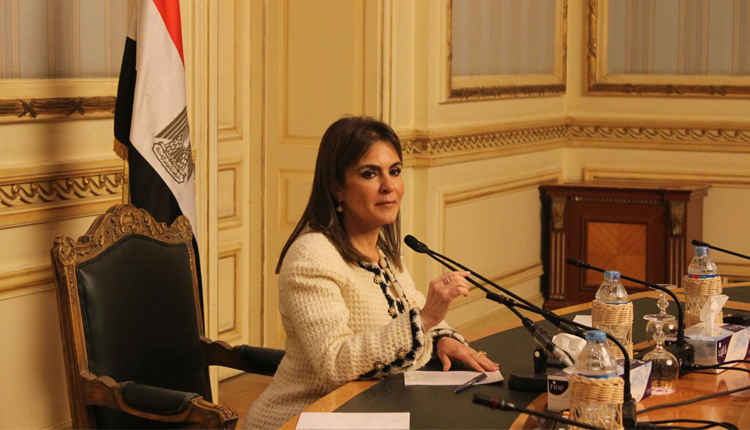Egypt-South Korea cooperation portfolio now $396 mln – minister
The ties between Egypt and South Korea have seen considerable progress since the visit by President Abdel Fattah al-Sisi to Seoul in 2016, and the international cooperation portfolio between the two countries has now reached $396 million, most of it in the transport sector.
These remarks were made by Egyptian Investment Minister Sahar Nasr on Tiesday.
Nasr, speaking during the opening of the Egyptian-Korean Business Council’s first forum on Tuesday, said that Korean investments in Egypt had reached their highest-ever level of $570 million, through 163 Korean companies working in Egypt in the services and industry sectors.
“There are significant opportunities to be tapped for increasing cooperation between the two countries, especially in railways and water desalination, in addition to venture opportunities in Egypt’s national mega-projects, benefitting from Korean experience in transportation, water, and supply of equipment,” she said.
The forum aims to allow Korean investors and businessmen to learn about Egypt’s economic reforms, which have improved the business climate significantly, Nasr said, as evidenced by the Korean businessmen themselves who are working in Egypt and no longer face the same challenges such as a shortage of hard currency and slow procedures.
She noted that this year will see more investments attracted to Africa via the African Continental Free Trade Agreement, which will open the door for Korean investments to target 1.2 billion consumers in Africa.
Egypt has recently been designated the most attractive investment hub in the continent and the growth leader in MENA region by the World Bank, she said.
Nasr also called on the Korean businessmen to participate in the Investing in Africa Forum that will be held in Cairo on 23 November.
South Korean Ambassador to Egypt Yoon Yeocheol said at the event that Egypt’s economic reforms have pushed Korean companies to explore venture opportunities in the country’s domestic market, and have made the business environment suitable for more Korean investments.
He said that the Korean companies are aware of available projects in construction and infrastructure, especially in the New Administrative Capital and New Alamein City.
“The Egyptian-Korean Business Council will usher in a new era for Egyptian-Korean relations, especially with the progress that Egypt’s economy is witnessing, which has made it the fastest growing in the region and a key hub for investments and commodities redistribution for African countries,” Yoon said.
“Meanwhile, Egypt’s government has eliminated all hurdles that Korean investments used to face in the domestic market,” Yoon added.
He also announced that 2020 would see the signing of a free trade agreement with Egypt in order to ease trade flow and transfer Korean technology to Egypt.
In the same vein, the head of POSCO, a Korean steel-making company, said that the firm intends to establish a power transformer station in the New Administrative Capital, and it is considering participating in developing the country’s railway signalling stations, in addition to investing in the automotive and electronics industries.
The head of LG Company said that the company’s investments in Egypt were worth $280 million, and it employed about 1,000 people, with an export volume of $130 million.
He added that the company increased its capital in 2018 by injecting 180 million pounds, with an export volume at 85 percent of its production amount, and the company intends to inject new investments worth $15 million to maximise its production lines in 2020.
It is considering enhancing cooperation with Egypt through tablet production with investments worth $170 million.
A representative of Samsung said that the company’s investments in Egypt had hit $250 million.
The company added investments worth $60 million in 2018, and is planning to add a new production line for homewares products and to establish a new factory for mobile phone assembly, as Samsung has the biggest market share of smart phones in the Egyptian market.
Source: Ahram Online


